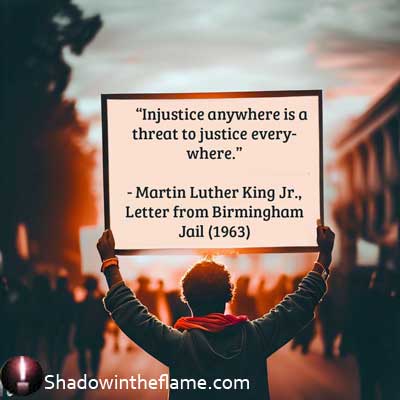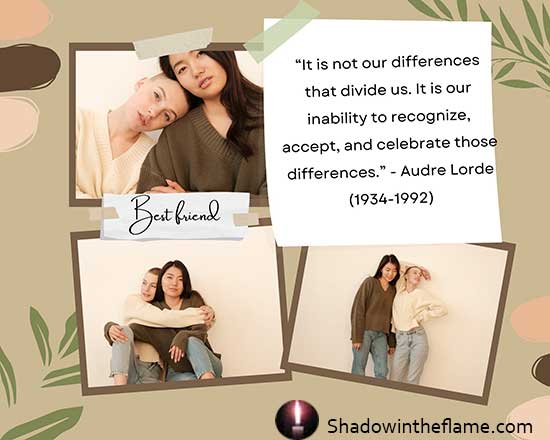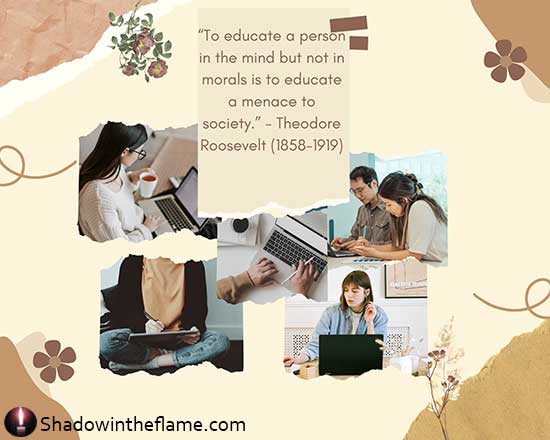
Have you ever had a problem with bullies or a bully?
I tend to associate bullies with school, because that was where I first met them, but some people meet them in the army, at work, in a volunteer organisation or even at home. In fact, you can meet them everywhere and anywhere.
Of course, it is not only people that act like bullies, countries can act like a bully. Nazi Germany, for example, and Russia at the present time. But of course, that is really their politicians, so we are back to bullies being people.
While bullying is a negative force, we cannot deny that it has played a significant role in shaping human history. It affects everything in society, our schools, our workplaces, our homes, our individual and national character, and the world. In short, it is, and has always been, a defining influence in our lives.
In this article, I want to look at why is bullying so endemic (widespread), so entrenched (so imbedded in our nature) and so difficult or possibly impossible to eradicate? What we can do about bullying, if anything?
Let’s start by defining it because not everybody recognises it in all its guises. When something is as pervasive as bullying, it becomes normalised and you may not see it until it affects you, and even then, you may not recognise it for what it is straight away.
The Nature of Bullies: Lessons Learned from the Good, the Bad, and the Ugly
- The Good
It’s hard to imagine there is anything good about being bullied, especially if you are the victim. But at the individual level and as a society, the unintentional, positive side effect that bullies have is to force us to look into the abyss of human nature and come to terms with the dark side. It’s a place we wouldn’t visit if we didn’t have to, but once we’ve been there, it changes us.
People who experienced bullying can use the experience to develop resilience and a strong sense of empathy, allowing them to become effective advocates for the disenfranchised and the abused.
So, although it may seem counterintuitive, bullies can have some positive influence by challenging our values and sense of fairness. Through their gross misbehaviour, they have sometimes been catalysts for change, inspiring the oppressed to rise against injustice and claim their rights.
One recent example of this is the “Me Too” movement, where, mainly women, who experienced bullying and abuse by executives and others in the entertainment industry, spoke up, one by one at first, but like a Mexican wave, it developed into a mass movement that has changed our worldview on this topic across all industries including all branches of government. `
- The Bad.
Bullying has undeniably left its mark on human history in many negative ways. The suffering it has inflicted is incalculable, with many victims experiencing long-term physical, emotional and psychological scars.

Children who experience being bullied are more likely to suffer from depression, anxiety, and suicidal thoughts, which can persist into adulthood. Famous individuals, such as pop singer Lady Gaga and actor Chris Pratt, have spoken openly about their experiences with bullying and the impact it has had on their mental health and self-esteem.
People who experienced bullying a lot tend to learn how to shrink in public, how to not stand out in the crowd, how to become invisible. They learn to keep silent and don’t advocate for themselves or anyone else, which definitely reduces their quality of life.
Besides the personal toll bullies inflict, they are often active in society and organisations, where they reinforce their preferred hierarchies by any means they deem necessary. A bully does not care about being fair or ethical. Getting what they want is the only important criteria. Bullies encourage discrimination, exacerbate social tensions and actively demoralise their opposition for their own benefit.
Bullying thrives in environments where it can intensify and exploit ethnic, cultural, or gender differences. It doesn’t always look extreme in the beginning, it usually starts with minor acts of discrimination, but skilled bullies push the envelope further and further towards the extreme, for example, during the Rwandan Genocide in the 1990s. Long-standing prejudice and discrimination was inflamed by Hutu government propaganda towards the Tutsi minority and incited cold-blooded acts of violence. Over the course of 100 days, up to half a million women and children were raped, sexually mutilated, or murdered. Between 500,000–800,000 Tutsi men and boys were murdered, leaving a population that is 70% female and, of course, it left deep scars on the nation’s psyche.
Unfortunately, the behaviour of bullies can influence some people to adopt the same behaviours in order to be accepted into a gang or group and enjoy the perceived benefits this group enjoys, or sometimes, just to avoid being bullied themselves.
One current example of this is the circle of advisers around Putin, the President of Russia.
Pre Putin, the Politburo in the Soviet Union, their version of a cabinet in our system, had significant independence and power. It debated all policies proposed by the leader and could veto or approve them. Putin has replaced it with hand chosen “yes” men who now hold every office of power in Russian Politics, receive the benefit of their powerful position, but must rubber stamp Putin’s every decision, good, bad or ugly, to remain in office.
Under the old system, it is unlikely the Politburo would have approved Putin’s invasion of Ukraine in 2022, but I feel they would have approved his actions in Syria because the risk was a lot lower and the benefits in prestige and influence in that region, a lot higher.
Another political example is the Republican Party in the US, where Donald Trump, during his last days as President and after, bullied members of the party to support the lie that Biden did not win the election, he asserts Biden stole it from him through vote rigging.
Although discredited so many times, including a recent decision by Fox News, to pay Dominion Voting Systems $787.5 million, to avert a trial over its coverage of the false vote rigging claims, Trump still pushes the lie and bullies Republican Party candidates and members of Congress into supporting it. If they don’t they risk incurring his rage and the consequent loss of support of his loyal base, their position on committees and endorsement when they contest their primaries.
 Putin’s bullying tactics have cemented his power but led to disastrous policies that have caused the death and injury of tens of thousands of Russians and Ukrainians, destroyed cities, disrupted economies worldwide, set off rampant inflation which increased the price of food and fuel and much more, including the end of what little freedom of speech there was in Russia,. Not a bad effort, for one Bully.
Putin’s bullying tactics have cemented his power but led to disastrous policies that have caused the death and injury of tens of thousands of Russians and Ukrainians, destroyed cities, disrupted economies worldwide, set off rampant inflation which increased the price of food and fuel and much more, including the end of what little freedom of speech there was in Russia,. Not a bad effort, for one Bully.
Trump has cemented his power in the Republican Party but pushed them down a track that has seen its integrity seriously called into question and affects their ability to concentrate on the important issues while constantly defending the great lie. At a time of economic and political crisis around the world, this rift between those who “believe” the lie and those who don’t, has exacerbated the divide between the Republicans and the Democrats, and within the wider Republican Party base.
The disjoint between Trump’s base and the wider Republican Party base and voters in general led to inappropriate candidates being selected by Trump’s more active base, but most of them did not get elected in the recent mid-term elections. The once great Republican Party is now flailing and struggling to find its direction. This could hamper America’s ability to respond to domestic and world issues, and that could have serious consequences in the future. Another example of an effective but devastating action by one Bully that may have consequences for many in America and around the world.
III. The Ugly
Bullying is Ugly. That should be written above the door of every home, school, workplace and government department.
But the ugliest aspect of bullying is not its capacity to bring out the worst in humanity, it is humanity’s incapacity to deal with it.
I often wonder if there are more compassionate people in the world, or more bullies. I think I won’t lose my money betting on bullies. Religious leaders do it, Politicians do it, Boss’s do it, Parents do it and, You and I do it!
The ugly thing about bullying is its omnipresence (it is present everywhere simultaneously). Most of it is small stuff, mainly at a personal level, but even that can be very destructive. However, wars, genocide, and human rights abuses are often driven by the actions of bullies in positions of power, which they used to foster and exploit fear and hatred to maintain control. I’m thinking of countries like Myanmar, Syria, Iran and many more. All of them are grim reminders of the potential consequences of unchecked bullying which led to aggression and cruelty.
How Bullying and Discrimination becomes Entrenched in the Workplace
When I left university, my first job was as a trainee manager for a large retail chain. When they promoted me to Section Manager, they transferred me to our largest suburban variety store. I had 3 long counters in my section. They were like a rectangle with the staff in the middle. Each counter had 3 staff and 4 in busy times.
My job was to make sure the section ran smoothly, but to be honest, the staff had more experience than me and ran the section efficiently. However, as a new section manager, with power over others for the first time, I found ways to bully them; Do this now, do that faster, refill the counter faster, and do something else, whatever it was. I thought being a boss meant I had to tell them how to do everything. I had to be seen to be the boss.
One day, my boss called me to his office to congratulate me. He told me I was the first manager he’d ever seen that got all 12 girls in the section, crying at the same time. The rest of what he said is unprintable, but if you’ve ever met an Aussie bushman, he would look tame next to this guy.
Thank goodness I met him at an early age. He pulled no punches as he told me, neither my staff nor he respected me that day. Thus began my training. Over the next few months, he taught me how to earn their respect, but it didn’t happen overnight because I had to learn a lot about myself and reach a point where I was prepared to change.
The position of section manager was a stepping stone to store manager and above for those who made it through the training and qualified to move to the next rung. While management skills were important, it was also a journey of discovery for the section manager. How would he handle authority and power? Could he relate to women of all ages and cultures, as well as to customers of all types, and could he do it when he was under stress? Once the company discovered your weak points, they taught you how to do the things you were not good at. But you had to be prepared to listen, learn, and change.
Much of what we learned was about managing our self and our urges to lose our temper or bully staff to get things done. We learned the secret, train new staff and then respect them and give them the authority to do their job. Maintain a discreet, watchful presence but only interfere when they are doing something wrong.
It was the non-skills training, the personal development, that I don’t see many company’s doing these days. It seems they prefer to poach experienced staff from other companies, but the question is, who trains the new people and do those poached staff have this training?
Genes are not the only thing we inherit
Now you may have noticed that I always refer to the section managers as men and the staff as women. That is not me being politically incorrect. There were no female section managers in my day, and I don’t remember any male sales staff behind the counter. Looking back, it amazes me how a company that knew the value of fostering empathy, compassion, and respect for one another did not respect women enough to let them apply for or be promoted to roles in management. I don’t know where that policy originated, but it was so entrenched that none of us noticed it.
The female staff never questioned it. I don’t know if that was because they knew it was futile or because they had never seen a female section manager and, therefore, never conceived it was possible. We section managers never wondered why there were no female or black section managers, there just weren’t. Every store manager and every senior manager in the company was a white male, so from day one, that just seemed normal.
But someone, or the board and / or, the C-Level executives, made the decision that managers were white males and sales staff were white females. I never saw it in writing and perhaps if I had, I would have noticed it and thought about it. It was never discussed, but I doubt HR ever hired a female trainee section manager or that any store manager considered hiring male or black sales staff. In fact, I am pretty sure the staff would have regarded it as strange if they did.
That is how a culture that is certainly discriminatory and a subtle form of bullying gets entrenched in an organisation and why it is so hard to change.
How do organisations such as religious, business, and government entrench discrimination into the culture, especially extreme discrimination?
The answer, of course, is the slippery slope approach.
Discrimination and bullying are inherited traits.
When I attended training to become a Life Line volunteer councillor, one of the first things they taught us was, poverty is inherited. If a child grows up in a home where one or both parents receive welfare or have low-paying jobs, they encounter so many disadvantages from malnutrition to low self-esteem and lack of ambition that they are, almost doomed to experience the same level of poverty their parents have. This happens so often that Lifeline coined the term, “poverty is inherited”.
I think discrimination and bullying are on the same level and therefore are also inheritable traits.
For example, if the culture has been conditioned to accept that women are less equal than men, then it is easy to introduce ceilings on promotion for women, unequal pay rates, domestic abuse, and even to expect them to be subservient to men.

When you want to promote another discrimination, for example against hiring other ethnicities, or disabled people, or not providing adequate social service benefits, not looking after the aged with respect, and so on, people accept it more easily because they have already bought the concept, that when there are differences between people it is ok to discriminate against some of them. In fact, some people are glad to have someone they can discriminate against, even if only in status.
What I hope you can see now is that discrimination and bullying build upon previous instances that condition us, over time, to accept such behaviour. If we were starting today, it would be harder to embrace most of these malicious behaviours because people would not accept them. However, these behaviours have been prevalent and unchecked since humans have existed, so the behaviour is already entrenched in our psyche. You might say it’s in our DNA. Most of the time, people are blind to it. They accept it because it has always been that way or they benefit from it and have no motivation to change it.
From Awareness to Action: Strategies for Mitigating the Consequences of Bullying and Discrimination
After our discussion above, bullying in the workplace or anywhere does not seem so surprising. In fact, it would be strange if we expected it did not occur.
But does that mean we have to accept the way it is? Is there no possibility of changing it?
I believe bullying and discrimination are so deeply embedded in the human psyche that it is impossible to eradicate these harmful behaviours completely in our lifetime or probably ever.
I hope I’m wrong about the ever, but I know I am right about in our lifetime. I do believe we can take action to mitigate the level and consequences of them in our lifetime and from there, ever will just take a little longer.
In my story about becoming a section manager for a retail giant, I told you I was a bit of a bully when I started because that was what I had learned at school and at home. My mum was a bit of a bully. I don’t blame her; she was a full-time homemaker with four active kids to keep in line and that was how her parents kept their kids in line. However, I changed, and that was in part because of the training that taught me how to get things done without bullying.
Luckily, in my family and as a kid, I never experienced discrimination. My parents never judged people by their race or colour only by their actions. Woe and betide if you did the wrong thing by any of their children, but no one ever had to ask for help. They always got it to the full extent that my parents could provide it.
That and my own experiences enabled me to see that prejudice and discrimination were destructive. Alternatively, embracing diversity widened my circle of friends, made me happier, and increased my knowledge of other cultures and other approaches to everything, including problem solving, which helped me be more successful in later life.
There are some big lessons here. First, upbringing is so important. It is not what your parents tell you; it is watching how they live their life that helps develop your character. I learned how to bully because that was what I experienced, and it became normal for me. I learned not to discriminate because I never saw it at home. I saw it at school, but my parents would never countenance such behaviour, so I learned to never do it.
Second, education is crucial and can make a difference. We can’t all be lucky in the way our parents bring us up, but education can either entrench bullying and discrimination or it can encourage us to think about it and decide if that is the best way to go.
 These two things are so important because the kids we educate today will be the parents of tomorrow. If we teach them to hate, to bully and to discriminate between human beings based on race or colour or sexuality, then that is what they will probably teach their children and bullying will continue forever.
These two things are so important because the kids we educate today will be the parents of tomorrow. If we teach them to hate, to bully and to discriminate between human beings based on race or colour or sexuality, then that is what they will probably teach their children and bullying will continue forever.
Education, building awareness and cultivating strategies for change can empower people to counteract their worst inclinations. For the bullied, education, at home and at school, can develop their resilience in the face of bullying and discrimination. For everyone, education can help people imagine and then nurture a more compassionate and inclusive world. But I accept not everyone wants to create such a world, their prejudices are too entrenched, or they don’t believe such a world is possible and they want to protect themselves and their children from this one.
Fear is one of the greatest inhibitors of change, and we have to recognise and understand that. That’s why the next step is important.
Developing Empathy and Compassion
Encouraging open conversations about personal experiences and perspectives can help people develop a deeper understanding of the effects of these behaviours. The retail company I worked for after university did this regarding some aspects of personal development, but not others. I have no illusions that the training was altruistic. They wanted us to be efficient managers and reduce staff turnover through poor management practices. It worked as far as it went, but they were blind to things like discrimination, and so it took many more years than it needed to, for women to ascend to management roles.
That taught me we have to be careful when we design our education programmes so we don’t unintentionally build in behaviours we don’t want to foster. Or we get them independently reviewed so that we reveal their biases and prejudices and make a transparent decision to include or exclude them, and tell people.
Creating Safe Spaces and Support Systems
If you want to change any entrenched habit, like smoking or drinking, you know you have to take conscious, proactive steps. You know you will most likely fail a few times before you succeed, or you may fail. That’s where support groups are very helpful. Well, it is much the same, if not harder, to address bullying and discriminatory behaviour, but the steps are the same.
Schools, workplaces, and community organizations can play a huge role in getting the conversation started by creating safe spaces and support systems where people from the community can come to discuss their experiences and receive guidance on how to cope and respond.
It is important that people see the community is taking this issue seriously, especially the people who are doing the bullying and discrimination. If the community do not regard bullying as an issue, the bullies have no reason to rethink their behaviour and rarely hear the sad stories of the victims. It may not change their point of view, but they will have to think twice before they act if they know we do not condone such behaviour in the community.
Education and Training
But mostly I believe it is important that we make young people aware of the issues and have the opportunity to discuss them. They may not realise what they are experiencing is abuse, or that they are being conditioned to abuse or discriminate against others.
Raising awareness of bullying and discrimination through education and training is crucial for mitigating their consequences. By providing workshops and seminars on topics such as:
- bystander intervention,
- conflict resolution, and
- cultural sensitivity,

Promoting Inclusivity and Diversity
schools and organizations can equip individuals with the tools they need to recognise and address these issues. Education programmes like these empower people to stand up against these harmful behaviours and support those who have been affected.
Promoting Inclusivity and Diversity
If we want to create lasting change, it is essential to promote inclusivity and diversity within communities and organizations at least as often as the bullies exploit ethnic, cultural, or gender differences.
Encouraging diverse representation in leadership roles, fostering open dialogue about different perspectives, and celebrating cultural differences can help break down barriers and challenge stereotypes. By creating an inclusive environment, we can reduce the likelihood of bullying and discrimination occurring so regularly and overtly. We can empower individuals to support one another in the face of adversity and show the bullies they have little to gain and a lot to lose.
Taking Action and Being an Ally
Finally, taking action and being an ally to those affected by bullying and discrimination is crucial. If you witness bullying or discrimination, speak up and support the person being targeted. By intervening and offering help, you can disrupt the cycle of harmful behaviours and show solidarity with the victim. In addition, standing up against instances of bullying and discrimination can inspire others to do the same, fostering a culture of empathy and support within the community.

In conclusion, if we want to reverse the spread of bullying and discrimination, we have to accept this is a long-term project to squeeze the condition out of our psyche and DNA. Building resilience in the face of bullying and discrimination requires a multifaceted approach that includes raising awareness, fostering empathy, creating support systems, education and implementing policies that challenge the power dynamics that perpetuate bullying and discrimination.
If you have had an experience with a bully that you would like to share with us please add it to the comments below here.

